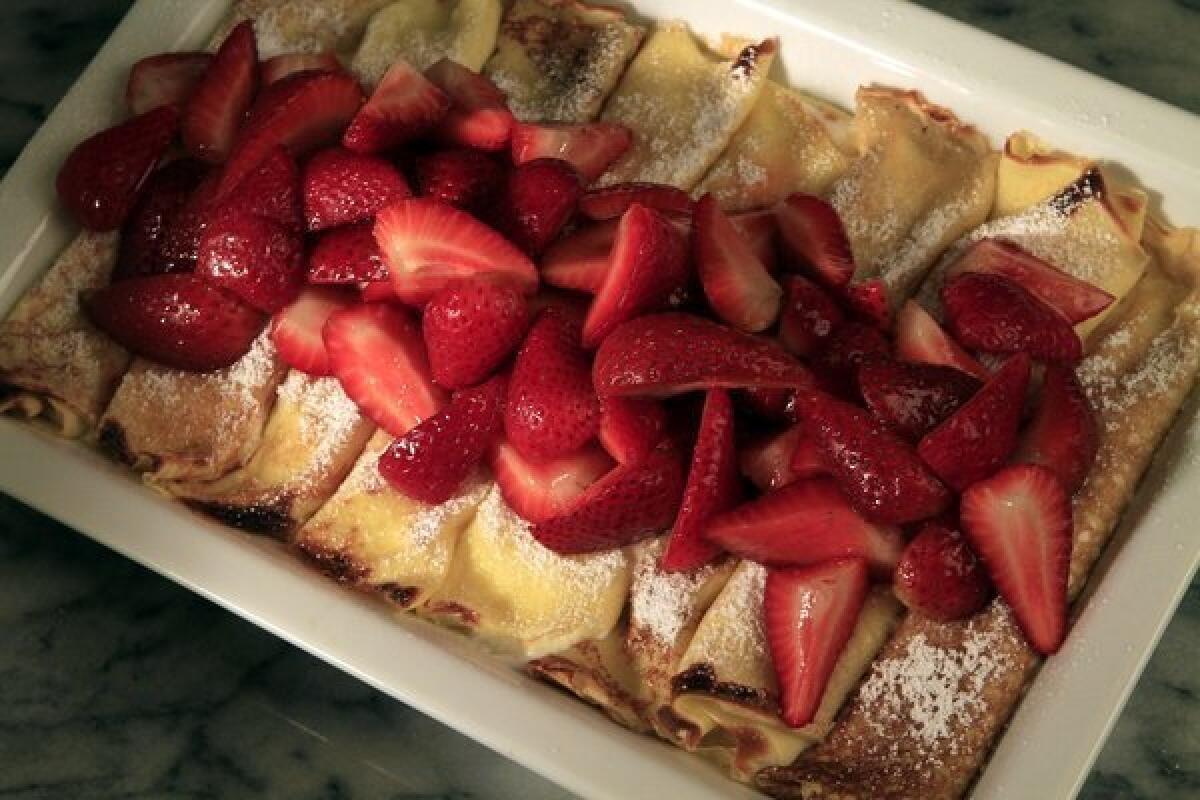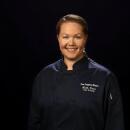Weekend project: Homemade quark cheese

Take some milk, add a little acid and give the mixture time to do its thing â who would have thought homemade cheese could be this simple? What with all the equipment and specialized ingredients Iâd read about, cheese making sounded as if it were better suited to a chemistry lab than to my tiny kitchen. That is, until I tried quark.
I know. Hear the word âquarkâ and you may conjure up images of dancing physics particles or âStar Trekâ characters. Or of wending your way through âFinnegans Wake.â Any of which might be even scarier than the thought of actually making cheese.
But quark is just the German word for âcurds.â A creamy, fresh cheese, quarkâs curds come together to form something magical â rich with a gentle tang, itâs spreadable, kind of a cross between sour cream and soft ricotta cheese. Variations of the cheese can be found throughout Scandinavia and Eastern Europe.
And itâs easy to make: Bring a couple of cups of milk to a simmer over moderate heat, then let it come to room temperature. Whisk in some acid (typically buttermilk, though some recipes call for lemon juice) and leave the mixture at room temperature for a day or so until curds form and the mixture thickens. Strain it to remove the clear whey, and voilà ! Youâve got cheese.
Itâs so simple, even a beginner like me couldnât mess it up. Oh, and did I mention it makes a great weekend project? Click on the links below for recipes for homemade quark, along with sweet crepes with berries and a savory quark and asparagus tart.
RECIPES:
ALSO:
Go behind the scenes at the Test Kitchen
Browse hundreds of recipes from the L.A. Times Test Kitchen
You can find Noelle Carter on Facebook, Google+, Twitter and Pinterest. Email Noelle at [email protected].
Recipe: Quark
Total time: 25 minutes, plus 1½ to 2 days setting and draining times
Servings: This makes a generous cup of quark.
2 cups whole milk
1/2 cup cultured buttermilk
1. In a stainless steel, heavy-bottomed saucepan, bring the milk to a simmer over medium heat. Remove from heat and set aside until the milk is cooled. Whisk in the buttermilk.
2. Transfer the mixture to a glass, ceramic or plastic container, and set aside at room temperature until the mixture is thickened, with a consistency similar to yogurt or crème fraîche, about 1 day.
3. Transfer the mixture to a cheesecloth-lined strainer set over a bowl. Refrigerate overnight to drain the whey from the cheese; the whey should be clear, not cloudy, as it is drained.
4. Use as desired. To store, place the cheese in a glass, ceramic or plastic container. Cover and refrigerate up to four days.
Each of 20 tablespoons: 19 calories; 1 gram protein; 2 grams carbohydrates; 0 fiber; 1 gram fat; 1 gram saturated fat; 3 mg cholesterol; 2 grams sugar; 19 mg sodium.
More to Read
Eat your way across L.A.
Get our weekly Tasting Notes newsletter for reviews, news and more.
You may occasionally receive promotional content from the Los Angeles Times.











